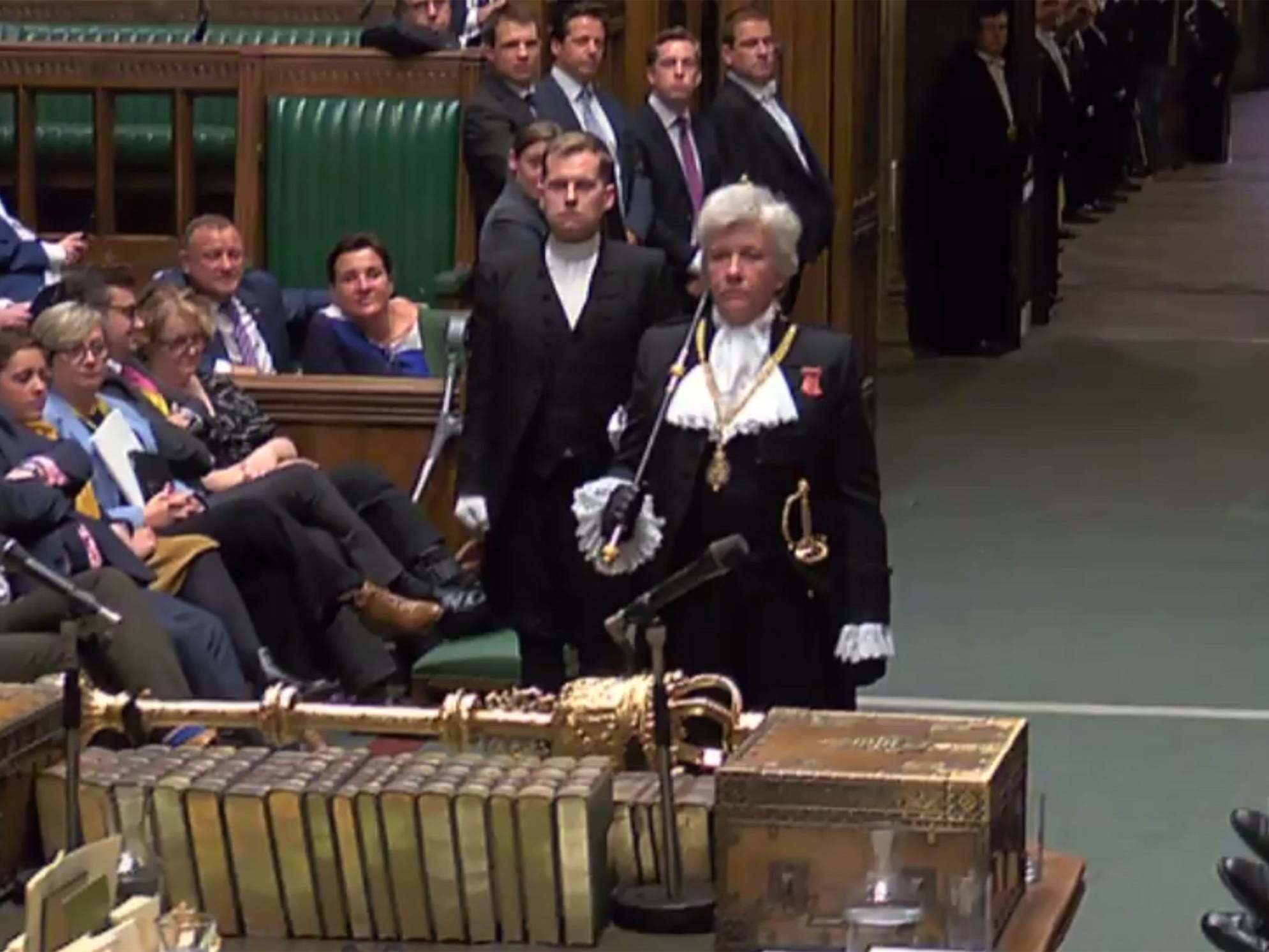The Supreme Court showdown on suspending parliament goes much further than Boris Johnson
Judges’ ruling on whether they have the right to scrutinise a prime minister’s political decision will be absorbed into the British constitution, Lizzie Dearden writes

A legal showdown that will set a new constitutional precedent for centuries to come is to unfold after Scottish judges found it unlawful for Boris Johnson to prorogue parliament.
The decision the Supreme Court must make goes far beyond the current prime minister, or Brexit, to the foundations of British democracy and the rule of law.
They must decide whether Johnson’s decision to stop parliament sitting for five weeks can be scrutinised by any judge, following opposing decisions by two of Britain’s highest courts.
Scotland’s Court of Session decided that it could on Tuesday, but last week the High Court of England and Wales ruled that it could not.
The three judges sitting in London found that Johnson’s request to prorogue parliament ahead of Brexit was “political” and therefore a “non-justiciable exercise of prerogative power” that cannot be judged by the courts.
The High Court said the issue “marked out the separation of powers between the judicial and the executive branches of government, a fundamental feature of our unwritten constitution”.
Lord chief justice Lord Burnett, master of the rolls Sir Terence Etherton and president of the Queen’s Bench Division Dame Victoria Sharp said that Johnson’s request for the Queen to prorogue parliament was made for “political reasons”.
“There are no legal standards against which to judge their legitimacy,” said their judgment on a case brought by Gina Miller and backed by supporters including Sir John Major.
“There is no legal measure of the length of time between parliamentary sessions. There is not even a constitutional convention which governs the matter.
“Moreover, it is impossible for the court to assess by any measurable standard how much time is required ‘to hold the government to account’.”
But Scottish judges ruled that Mr Johnson’s advice to the Queen was “unlawful because it had the purpose of stymying parliament”.
A petition for judicial review launched by Scottish National Party MP Joanna Cherry, and supported by 78 other politicians, was initially dismissed by a lower court that found the matter of “high policy and political judgment” could not be decided by the courts.
But an appeal heard at the First Division of the Court of Session overturned the decision, finding judges could rule on the matter outside the judicial review process.
Three judges unanimously decided that the prime minister’s call for prorogation was “motivated by the improper purpose of stymying parliament and that it, and what has followed from it, is unlawful”.
A summary of their judgment said that parliamentary scrutiny of the government’s executive branch was a “central pillar” of good governance, democracy and the rule of law.
It said documents disclosed by the government showed that frustrating parliament was the “true reason for the prorogation”, despite Mr Johnson’s outright denial that he was cutting the opposition’s time to prevent a no-deal Brexit.
“No, that is completely untrue,” the prime minister told Sky News on 28 August. “We are bringing forward a new legislative programme on crime, hospitals, making sure we have the education funding we need.”
But Court of Session judges said that from government documents “it was to be inferred that the principal reasons for the prorogation were to prevent or impede parliament holding the executive to account and legislating with regard to Brexit, and to allow the executive to pursue a policy of a no-deal Brexit without further parliamentary interference”.
They found there was “no other explanation” for prorogation other than an attempt to limit scrutiny and restrict parliament.
The High Court detailed the evidence it received, including a 15 August document where Downing Street’s director of legislative affairs advised Mr Johnson to prorogue parliament, “shows that a number of considerations were taken into account”.
Published excerpts claimed the proposed date for the Queen’s speech on 14 October would leave time to prepare the government’s new legislative agenda and address the fact that it was “increasingly difficult to fill parliamentary time with appropriate work”.
“Those MPs most anxious about no deal may welcome the government facilitating key votes on a known date close to the EU Council, and the chance to table amendments, rather than having to find some peculiar mechanism which tears up convention and parliamentary procedure,” the Downing Street document said.
“Prorogation has been portrayed as a potential tool to prevent MPs intervening prior to the UK’s departure from the EU on 31 October … the dates proposed seek to provide reassurance by ensuring that parliament will sit for three weeks prior to exit, and that a maximum of seven sitting days are lost separate of the period usually set aside for conference recess.”
The High Court concluded that intervening in the dispute would risk interfering with the separation between judicial, legislative and executive powers.
“This is territory into which the courts should be slow indeed to intrude by recognising an expanded concept of parliamentary sovereignty,” judges said. “In our view, the decision of the prime minister to advise Her Majesty the Queen to prorogue parliament is not justiciable in HM courts.”
The Supreme Court will consider both the High Court and Court of Session judgments in a three-day hearing next week, where parties to the unprecedented case will include 80 current and former parliamentarians.
Whatever decision it makes will change the UK’s constitution forever.
Join our commenting forum
Join thought-provoking conversations, follow other Independent readers and see their replies
Comments
Bookmark popover
Removed from bookmarks